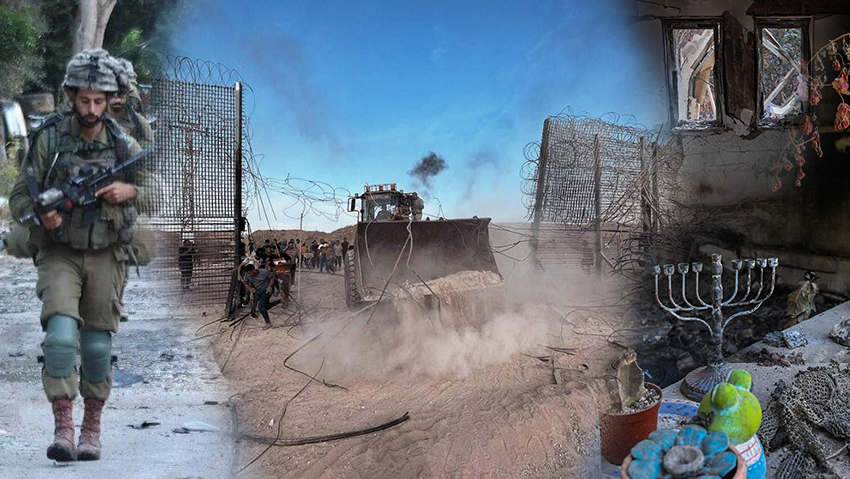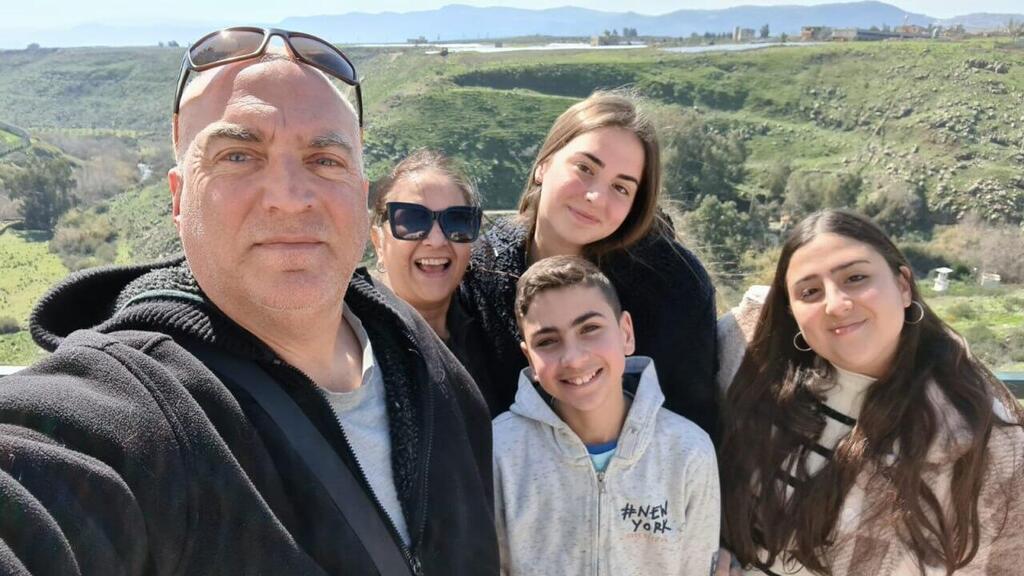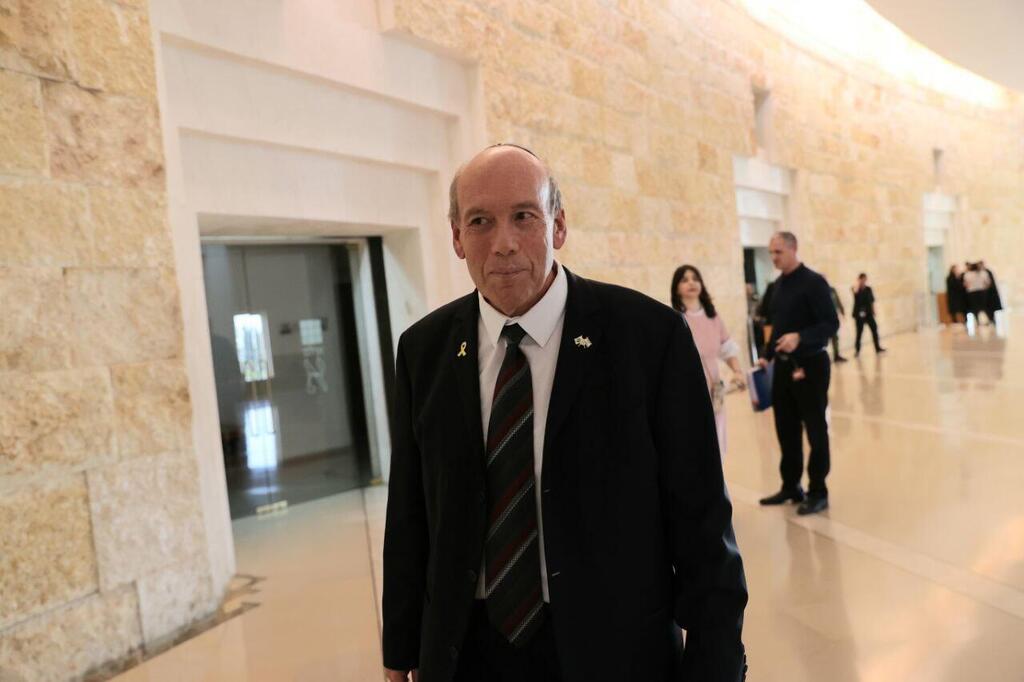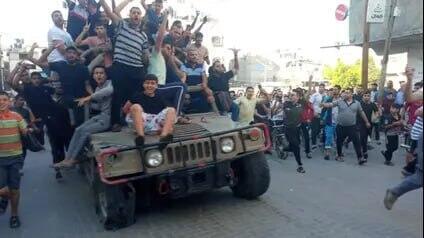Getting your Trinity Audio player ready...
For 14 months, Israel has grappled with the agonizing question: How did the events of October 7 unfold, and who is responsible for the failures that allowed the tragedy to occur?
These questions haunt victims, their families, and a nation desperate for answers—not just to assign blame but to heal, grow, and ensure that such a disaster never happens again.
As countless victims and their loved ones have voiced, understanding what went wrong is essential for closure and for strengthening the country’s ability to prevent and respond to future threats.
“We have to conduct a proper investigation so that we know what to fix,” said Eyal Eshel, father of Sgt. Roni Eshel, an observer soldier who was killed at the Nahal Oz base on October 7.
However, the government and the Israel Defense Forces (IDF) have been reluctant to launch a formal investigation. Such an inquiry would likely be led by a team established by the Knesset’s State Control Committee. Instead, over the past several months, a civilian committee has carried out its own investigation and presented limited recommendations. The IDF has conducted isolated reviews of specific incidents in a few affected communities, but little progress has been made toward a comprehensive inquiry.
At the end of November, an agreement between the state comptroller and the IDF finally paved the way for a formal review to begin. This framework allows the investigation to proceed while enabling the IDF and its commanders to maintain focus on the ongoing war and internal learning processes. According to the Supreme Court’s recent decision, core reviews of the events of October 7 are set to begin in the first quarter of 2025, taking into account the wartime circumstances.
Once completed, the reports from these investigations will be submitted to the State Control Committee, alongside findings from the Civilian Commission of Inquiry, which presented its report earlier this week. Together, these documents could provide the foundation for a broader trial led by an investigative committee appointed by the Knesset. Advocates hope this process will lead to meaningful reforms and accountability.
Eshel, who was deeply involved in the work of the Civilian Commission, acknowledged the challenges ahead.
“It will be hard for the state comptroller to move forward, but [Israel’s state comptroller and ombudsman] Matanyahu Englman and his team will break the glass ceiling. There is no other choice,” he said.
While critics argue that the effort comes too late and may prove insufficient, insiders close to the process assured The Media Line that the results will likely shake the country and bring long-awaited answers to light.
“In any responsible, well-ordered organization, a complex activity will be followed by an in-depth investigation so that lessons can be learned from experience and conclusions can be drawn for professional, organizational conduct should the need for further activity arise in the future,” stressed Prof. Asa Kasher, a professor emeritus of professional ethics and philosophy and a senior researcher at the Institute for National Security Studies at Tel Aviv University.
“The investigation should focus on the activity’s most important aspects... However, to improve the organization and the outcome of its future activities, other aspects will have to come into play,” he added.
Inside the state comptroller’s investigation: A comprehensive approach
The Media Line received an exclusive briefing on how the state comptroller’s investigation will be conducted. The process will involve approximately 200 people working across various aspects of the audit, focusing on two primary areas: the events of October 7 and the government’s management of the aftermath.
The first area of investigation centers on the day of the attack. The comptroller’s office will scrutinize the roles of the country’s politicians, the army, intelligence agencies, and others. Critical questions will be asked: What happened along Israel’s southern border? Why was the IDF unprepared? Were there warning signs that such an attack could occur, and, if so, why were they ignored? Did security officials know about the Nova Festival, and why wasn’t it better protected?
5 View gallery


Nova festival massacre survivor Niv Cohen testifies before the Civilian Commission of Inquiry
(Photo: Shaul Golan)
The investigation’s second focus will be on Israel’s management of the homefront after the attack. This includes how the government handled support for civilians—such as grants, economic assistance for small businesses forced to close, and the allocation of the war budget. It will also examine the evacuation and identification of the injured and deceased and the evacuation of residents from vulnerable areas in Israel’s North and South. Additionally, the audit will delve into the mental health support provided to citizens, identifying gaps and areas for improvement.
Around 60 areas will be investigated, with half to two-thirds focusing on how the government has managed the civilian population in the 14 months since the attack.
“No one will be spared,” The Media Line was told, indicating that even top ministers and senior army officials will be held accountable. The comptroller’s findings are expected to include the names of those deemed responsible and recommendations for action, ranging from resignations to potential criminal trials.
Although a few high-ranking military personnel have already stepped down, citing their failure to act effectively on October 7, some argue that such resignations lack substance.
As Kasher told The Media Line, “Immediate resignation has only symbolic value and not even that when the commander admits his failure and overall responsibility for a failure he did not prevent. His resignation has value only if it comes after an investigation and a process leading to an improvement in the unit’s activities. Merely replacing one commander with another does not guarantee improvement. There has to be a solid foundation for every step in the process, which also includes resignation and replacement.”
Get the Ynetnews app on your smartphone: Google Play: https://bit.ly/4eJ37pE | Apple App Store: https://bit.ly/3ZL7iNv
The Office of the State Comptroller’s authority is comparable to that of a parliamentary investigative committee, but the process differs slightly. A parliamentary committee would conduct public hearings, whereas the comptroller’s work is carried out behind closed doors, ensuring confidentiality during the investigation. However, the final reports will be presented publicly.
The comptroller also holds unique legal powers, including the ability to subpoena individuals for interviews and access all necessary documents, even classified ones. This ensures a level of accuracy and thoroughness that surpasses the work of the Civilian Commission.
Civilian report highlights failures leading to October 7
The Civilian Commission’s report was delivered this week to MK Mickey Levy, chairman of the State Control Committee. However, Eshel explained to The Media Line that the full report has not yet been shared with the public due to its sensitive information.
Portions that could be disclosed were presented during a public briefing in Tel Aviv last month.
The report, compiled over more than four months, is based on testimony from approximately 120 witnesses. According to a spokesperson interviewed by The Times of Israel, it aims to help victims’ families understand what happened to their loved ones while pressuring the government to launch its own formal investigation.
“Imagine if after 9/11 there wasn’t an investigation,” the spokesperson told The Times of Israel. “I don’t think anyone can even imagine this.”
The commission placed significant blame for October 7 on Israeli Prime Minister Benjamin Netanyahu, accusing him of fostering a disconnect between Israel’s political and military leadership. This division, the report asserts, left the country unprepared for the unprecedented attack. The commission also criticized the IDF and the Israel Security Agency, stating they had “completely failed to fulfill their sole objective — protecting the citizens of Israel.”
The report revealed that Israeli leadership had been warned that relying on Qatari cash transfers to pacify Hamas could be a flawed strategy, yet the warnings went unheeded.
Alarmingly, the IDF had obtained what appeared to be Hamas’s plans for the October 7 assault a year earlier but failed to prepare for the possibility of a large-scale invasion adequately, the report said. The commission also criticized the defense establishment for shifting its focus to a “small and smart army,” overly reliant on technology to secure borders, at the expense of training soldiers and maintaining sufficient ground forces.
The report concluded by calling for sweeping reforms to decision-making processes at all levels of government. It recommended implementing more vigorous checks and balances and establishing a cohesive national security strategy. A bill requiring the government to develop such a strategy is progressing through the Knesset.
While the Civilian Commission’s report represents an important first step, Kasher noted its limitations. The volunteers who compiled it—himself included, though he stepped down from the role some time ago—did not have the authority to compel testimony from individuals. Kasher emphasized that the state comptroller’s investigation will likely prove more effective due to its broader powers. Ultimately, however, he believes a comprehensive and official state inquiry will still be necessary to fully address the failures and ensure accountability.
The ICC vs. Israel’s domestic inquiries
None of these reports will address the actions being scrutinized by the International Criminal Court (ICC), which is investigating whether Israel harmed the Palestinian people during the past 14 months of war. To respond effectively to the ICC, Israel would need to confront similar questions.
However, the Office of the State Comptroller or any other body conducting these inquiries is not currently focused on addressing international allegations.
Israel has previously undertaken such investigations. In 2010, the government appointed an independent public commission of inquiry, led by former Supreme Court Justice Jacob Turkel, to examine whether Israel’s naval blockade of Gaza and its actions during the takeover of the Mavi Marmara—part of a Turkish flotilla bound for Gaza—complied with international law.
“A responsible investigation of war will, of necessity, shed light on many aspects of the overall picture,” Kasher observed.
The pressing question remains: Will the comptroller’s findings pave the way for a government-mandated investigation under a comprehensive state committee?
“In the end, it will happen,” Eshel said. “It is just a matter of time. If not, the country will be lost.”






